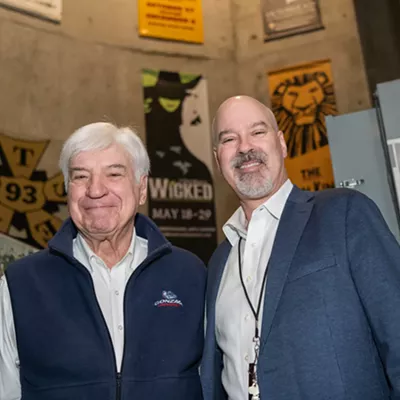The political history of Spokane is like Groundhog Day. Starting in the 1890s, our little boomtown had neighborhood representatives and a full-time mayor. In 1911, we tried to replace politics with efficiency by electing five independent commissioners to run the city. In 1961, realizing that five lieutenants and no general was not working, we switched to the city manager form of government, with a mostly symbolic mayor. Finally, in 1999 we decided to replace the (alleged) efficiency of a city manager with politics, and — voila! — we're back where we started.
Our strong mayor system is still on probation, and history shows Spokane will pull the plug if it's not working. Success in any system is dependent on its leaders, and so far the record has been underwhelming. Existing power structures haven't been totally on board, and our mayors have picked some dumb fights and wound up the butt of too many Doug Clark columns. David Condon has fit the description of strong mayor quite well, but lately he's stumbled — on raises and on cutting loose Planning Director Scott Chesney.
Condon seems surprised — defensive, even — by the public reaction, but he shouldn't be. The Chesney episode raises two of the biggest critiques of the strong mayor system — that it lacks transparency and is too vulnerable to political patronage. To be silent on why Chesney was let go by saying it's a personnel issue, thus a secret, is not an answer citizens understand. Are we to believe there was something sinister going on? Or is it just that the administration didn't have a good reason? Secrecy erodes trust.
Patronage — hiring your friends to work for the government you lead — is enshrined in the Constitution, but the power is so great, citizens must pay attention. In Chicago, it took 50 years and federal intervention to end the practice that funneled millions to mayoral cronies and created bad government. Mayor Condon made a solid hire in Police Chief Frank Straub, which makes dropping a public servant who was getting good reviews a head-scratcher. Spokane still wants qualified people to run the city efficiently.
When we fire mayors who are doing a mostly good job, or even a planning director, we kill continuity. And Spokane is at a sensitive moment right now, with lots of momentum that needs continuity to bear fruit. It all starts with trust. Mayor Condon has a surplus, as he presided over impressive victories on last week's roads and parks bonds. But if he's wondering how seemingly little things like a modest raise or replacing a department head are being so scrutinized, it's because they challenge the public trust. And in Spokane, that's been a very short leash indeed. ♦

























